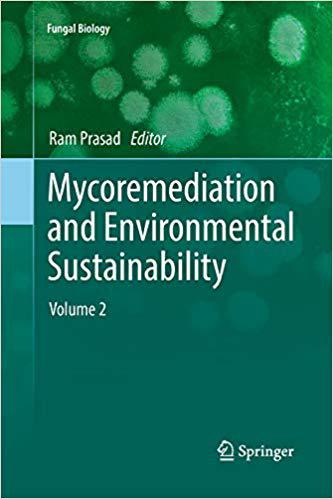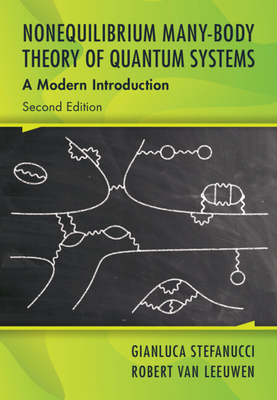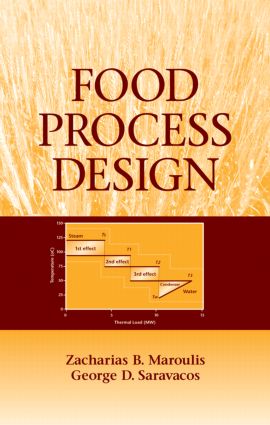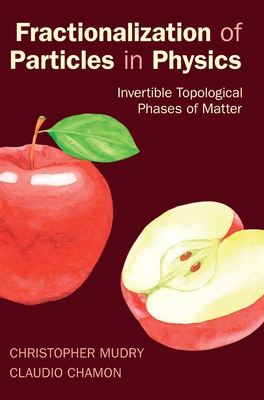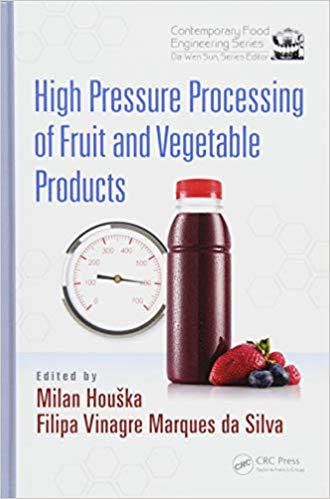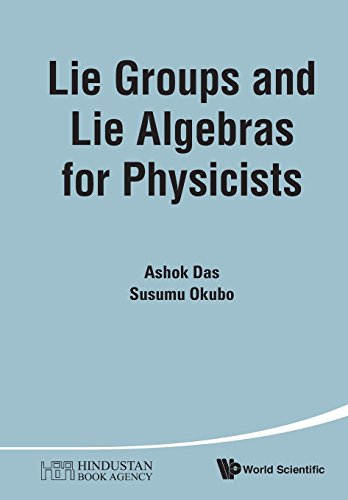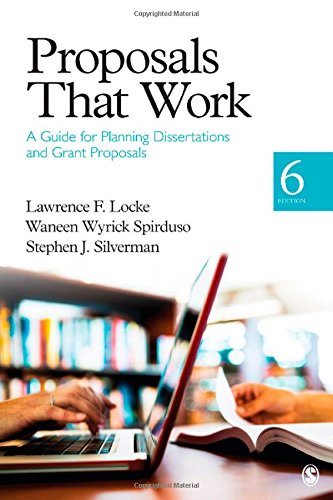图书简介
Bioremediation is the use of microorganisms? metabolism to degrade waste contaminants (sewage, domestic, and industrial effluents) into non-toxic or less toxic materials by natural biological processes. Volume 2 offers new discussion of remediation through fungi-or mycoremediation-and its multifarious possibilities in applied remediation engineering and the future of environmental sustainability. Fungi have the biochemical and ecological capability to degrade environmental organic chemicals and to decrease the risk associated with metals, semi-metals, noble metals, and radionuclides, either by chemical modification or by manipulating chemical bioavailability. Additional expanded texts shows the capability of these fungi to form extended mycelia networks, the low specificity of their catabolic enzymes, and their use against pollutants as a growth substrate, making these fungi well suited for bioremediation processes. Their mycelia exhibit the robustness of adapting to highly limiting environmental conditions often experienced in the presence of persistent pollutants, which makes them more useful compared to other microbes. Despite dominating the living biomass in soil and being abundant in aquatic ecosystems, however, fungi have not been exploited for the bioremediation of such environments until this added Volume 2. This book covers the various types of fungi and associated fungal processes used to clean up waste and wastewaters in contaminated environments and discusses future potential applications.
Preface 1 Bioremediation Applications with Fungi Necdet Saglam1*, Ozfer Yesilada2, Semran Saglam3, Elif Apohan2, Mesut Sam4, Sedef Ilk5, Ezgi Emul1, Ekrem Gurel6 1Division of Nanotechnology and Nanomedicine, Graduate School of Science and Engineering, Hacettepe University, Ankara, Turkey 2Department of Biology, Faculty of Science and Letters, Inonu University, Malatya, Turkey 3Department of Atomic Molecular Physics, Faculty of Science, Gazi University, Ankara, Turkey 4Department of Biology, Faculty of Science and Letters, Aksaray University, Aksaray, Turkey 5Central Research Laboratory, Omer Halisdemir University, Nigde, Turkey 6 Department of Biology, Faculty of Science and Letters, Abant Izzet Baysal University, Bolu, Turkey 2 Role of Phytochelatines (PCs), Metallothionines (MTs) and Heavy metal ATPase (HMA) Genes in Heavy Metal Tolerance Khushboo Chaudhary, Swati Agarwal and Suphiya Khan Department of Bioscience and Biotechnology, Banasthali University (Tonk) Rajasthan India 304022 3 Production of Biooils from Microbial Biomasses Laura Bardi CREA - Council for Agricultural Research and Agricultural Economy Analysis Area di Ricerca del CNR di Torino Strada delle Cacce 73 - 10135 Turin, Italy 4 Mycoremediation of Agricultural soil: Bioprospection for sustainable development Jyotika Purohit1, A. Chattopadhyay1, N.K. Singh2 1Assistant Professor, Department of Plant Pathology, C.P. College of Agriculture, S.D. Agricultural University, Gujarat, India 2Dept. of Microbiology, C.P. College of Agriculture, S.D. Agricultural University, SK Nagar, Gujarat, India 5 Bioremediation and Decolorization of Textile Dyes by White Rot Fungi and Laccase Enzymes Ozfer Yesilada1, Emre Birhanli2, Hikmet Geckil3 1Department of Biology, Faculty of Science and Letters, Inonu University, Malatya, Turkey 2Department of Biology, Faculty of Science and Letters, Inonu University, Malatya, Turkey 3Department of Molecular Biology and Genetics, Faculty of Science and Letters, Inonu University, Malatya, Turkey 6 Mycoremediation of Common Agricultural Pesticides Chitra Pandey1, Deepti Prabha2, Yogesh Kumar Negi1 1Department of Basic Sciences, College of Forestry (VCSG UUHF), Ranichauri, Tehri Garhwal, Uttarakhand, India 2Deptt. of Seed Science and Technology, School of Agriculture and Allied Sciences, Chauras Campus, HNB Garhwal University, Srinagar Garhwal, Uttarakhand, India 7 Bioremediation of Insecticides by White Rot Fungi and its Environmental Relevance Debashish Mohapatra, Sakti Kanta Rath and Pradipta Kumar Mohapatra Department of Botany, School of Life Sciences, Ravenshaw University, Cuttack -753003 8 An Overview of Fungal Applications in the Valorization of Lignocelullosic Agricultural By-products: The case of Two-phase Olive Mill Wastes Rocio Reinaa, Mercedes Garcia-Sanchezb, Christiane Liersc Inmaculada Garciaa, Elisabet Arandad 1Consejo Superior de Investigaciones Cientificas (CSIC), Estacion Experimental del Zaidin (EEZ), Department of Soil Microbiology and Symbiotic Systems, Prof. Albareda 1, E-18008 Granada, Spain 2Environmental Chemistry and Plant Nutrition, Faculty of Agrobiology, Food and Natural Resources, Czech University of Life Sciences, Kamycka, 129 00, Prague 6-Suchdol, Czech Republic. 3Dresden University of Technology, International Institute Zittau, Department of Bio and Environmental Sciences, Markt 23, 02763 Zittau, Germany 4University of Granada, Water Research Institute, Department of Microbiology, Edificio Fray Luis, Ramon y Cajal 4, 18071, Granada, Spain Rocio Reina, Mercedes Garcia-Sanchez, Inmaculada Garcia-Romera, Elisabet Aranda 9 Fungal Conversion and Valorization of Winery Wastes Albino A. Dias, Ana Sampaio, Carla Amaral, Rose M.O.F. Sousa, Paula A. Pinto, Joana M.C. Fernandes, Rui M.F. Bezerra CITAB - Centre for the Research and Technology of Agro-Environmental and Biological Sciences, UTAD - Universidade de Tras-os-Montes e Alto Douro 5000-801 Vila Real, Portugal 10 Biosorption of Dye and Heavy Metal Pollutants by Fungal Biomass: A Sustainable Approach Busi Siddhardha, Himani Meena Department of Microbiology, School of Life Sciences, Pondicherry University, Puducherry - 605014, India 11 Application of Myconanotechnology in the Sustainable Management of Crop Production System Deepanwita Deka, Jintu Rabha and Dhruva Kumar Jha* Microbial Ecology Laboratory, Department of Botany, Gauhati University, Guwahati-781014, Assam, India 12 Obligate Marine Fungi and Bioremediation V. Venkateswara Sarma Department of Biotechnology, Pondicherry University, Kalapet, Pondicherry-605 014, India 13 Mycoremediation Mechanisms for Heavy Metal Resistance/Tolerance in Plants Poonam C. Singh, Sonal Srivastava, Deeplai Shukla, Vidisha Bist, Pratibha Tripathi, Vandana Anand, Salil Akravanshi, Jasvinder Kaur, Suchi Srivastava Division of Plant Microbe Interactions, CSIR-National Botanical Research Institute, Rana Pratap Marg, Lucknow - 226 001, India 14 Fungal Derived Chitosan Based Nanocomposites: A Sustainable Approach for Heavy Metal Biosorption and Environmental Management Siddhardha Busi, Subhaswaraj Pattnaik Department of Microbiology, School of Life Sciences, Pondicherry University, Puducherry - 605014, India Index
Trade Policy 买家须知
- 关于产品:
- ● 正版保障:本网站隶属于中国国际图书贸易集团公司,确保所有图书都是100%正版。
- ● 环保纸张:进口图书大多使用的都是环保轻型张,颜色偏黄,重量比较轻。
- ● 毛边版:即书翻页的地方,故意做成了参差不齐的样子,一般为精装版,更具收藏价值。
关于退换货:- 由于预订产品的特殊性,采购订单正式发订后,买方不得无故取消全部或部分产品的订购。
- 由于进口图书的特殊性,发生以下情况的,请直接拒收货物,由快递返回:
- ● 外包装破损/发错货/少发货/图书外观破损/图书配件不全(例如:光盘等)
并请在工作日通过电话400-008-1110联系我们。
- 签收后,如发生以下情况,请在签收后的5个工作日内联系客服办理退换货:
- ● 缺页/错页/错印/脱线
关于发货时间:- 一般情况下:
- ●【现货】 下单后48小时内由北京(库房)发出快递。
- ●【预订】【预售】下单后国外发货,到货时间预计5-8周左右,店铺默认中通快递,如需顺丰快递邮费到付。
- ● 需要开具发票的客户,发货时间可能在上述基础上再延后1-2个工作日(紧急发票需求,请联系010-68433105/3213);
- ● 如遇其他特殊原因,对发货时间有影响的,我们会第一时间在网站公告,敬请留意。
关于到货时间:- 由于进口图书入境入库后,都是委托第三方快递发货,所以我们只能保证在规定时间内发出,但无法为您保证确切的到货时间。
- ● 主要城市一般2-4天
- ● 偏远地区一般4-7天
关于接听咨询电话的时间:- 010-68433105/3213正常接听咨询电话的时间为:周一至周五上午8:30~下午5:00,周六、日及法定节假日休息,将无法接听来电,敬请谅解。
- 其它时间您也可以通过邮件联系我们:customer@readgo.cn,工作日会优先处理。
关于快递:- ● 已付款订单:主要由中通、宅急送负责派送,订单进度查询请拨打010-68433105/3213。
本书暂无推荐
本书暂无推荐
